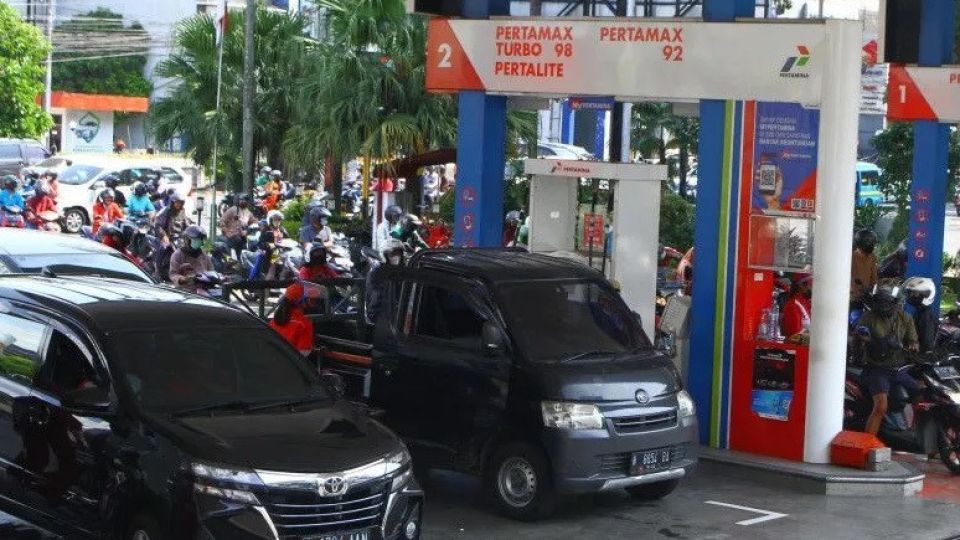August 23, 2022
JAKARTA – Indonesia can rightly be proud of its economic record, and thanks to the combination of its monetary and fiscal policies, the government of President Joko “Jokowi” Widodo has helped to ensure economic stability and more importantly, political stability.
Considering the turmoil that many countries are going through at this time, the US$33.5 billion the government has had to shell out may be worth it. But whether this is sustainable for the good of the country is another question.
Bank Indonesia (BI) has averted pressure to increase its interest rates when most of the rest of the world, led by the United States, have been raising theirs. Jokowi has resisted pressure to increase domestic gasoline prices, even as global oil prices go through the roof.
The prices of basic foodstuffs are also on the rise amid global food shortages, but they are still manageable. Meanwhile, Indonesia has continued to enjoy a trade surplus for the past 26 months.
Inflation is certainly rising, but at 4.9 percent, it is comparatively low when many countries are seeing double digits.
President Jokowi touted all these economic achievements in his State of the Nation address on Aug. 16 to boost national confidence.
Central to the “Jokowinomics” policy is keeping energy prices, primarily gasoline prices, in check by pumping more and more government funds into subsidies. This year’s energy subsidy bill comes to Rp 502 trillion ($33.5 billion), accounting for 16 percent of total government spending in 2022.
President Jokowi has repeatedly stressed that no other country in the world has spent as much to keep energy prices low. He has admitted that this is not sustainable, however, and that the government will be forced to increase prices, maybe as soon as this week.
Economists, not just the neoliberal types, will tell you that subsidizing a commodity is a bad policy for many reasons, including distorting the market signals on supply and demand and encouraging inefficient use of the commodity. There is also the opportunity cost: In this case, the $33.5 billion in public money could have been spent on other programs with wider or greater economic impacts.
But there is a strong political reason why the government is continuing to ignore the economic arguments to keep gasoline prices low, and this holds true for not just President Jokowi, but also all other leaders before him.
Raising domestic fuel prices carries huge political risks that no president would want to take on if they can help it. They have taken their cue from strongman Soeharto, whose three-decade regime collapsed following massive nationwide unrest in 1998, when he hiked gasoline prices in response to deepening recession.
Although official figures show that the poverty rate has fallen dramatically over the last two decades to a single digit, 9.54 percent still translates to a staggering 26.2 million people living in poverty. And millions of others are only slightly above the poverty line, so they remain vulnerable to descending into poverty at the first sign of an economic slowdown, a recession or runaway inflation.
Hiking fuel prices is therefore always a hot political potato for any president because doing so affects millions of lives. If an authoritarian like Soeharto couldn’t pull it off, what chance is there for the democratically elected presidents that have succeeded him?
Although all presidents agree that the energy subsidy is a huge burden on the state budget and should thus be phased out, they keep passing the buck to their successors. President Jokowi started phasing out the fuel subsidy over a few months at the start of his first term in 2014, but that was largely thanks to the exceptionally low world oil prices at the time. And as soon as global prices rose, the subsidy was resumed.
This is a nation that is so addicted to cheap gasoline, the energy subsidy has been sustained, rightly or wrongly, by every government to avert political turmoil and endorsed by almost every politician looking for votes.
When most other countries in the world, including those much poorer than Indonesia, are already paying the economic price or even taxing fuel consumption, we continue to spend billions of dollars on the energy subsidy to feed this national addiction. Meanwhile, the natural resource curse from oil continues to haunt the country, even though Indonesia stopped being a net oil exporter more than two decades ago.
One can think of many economic and social programs that deserve funds from the $35 billion public pot, from financing infrastructure projects to improving the national health system and to spending on education or poverty eradication, even spending on President Jokowi’s expensive new capital city project in Kalimantan.
Beyond the forgone opportunity cost, there are also other costs that are not as apparent. One is that cheap gasoline discourages the nation from making the switch to renewable energy sources, which has implications on Indonesia’s carbon reduction commitments.
Will the country’s presidents after 2024 be capable of phasing out the fuel subsidy, or will they still be haunted by the prospect of political unrest and continue to feed the national addiction to cheap gasoline? We will have to wait and see.


